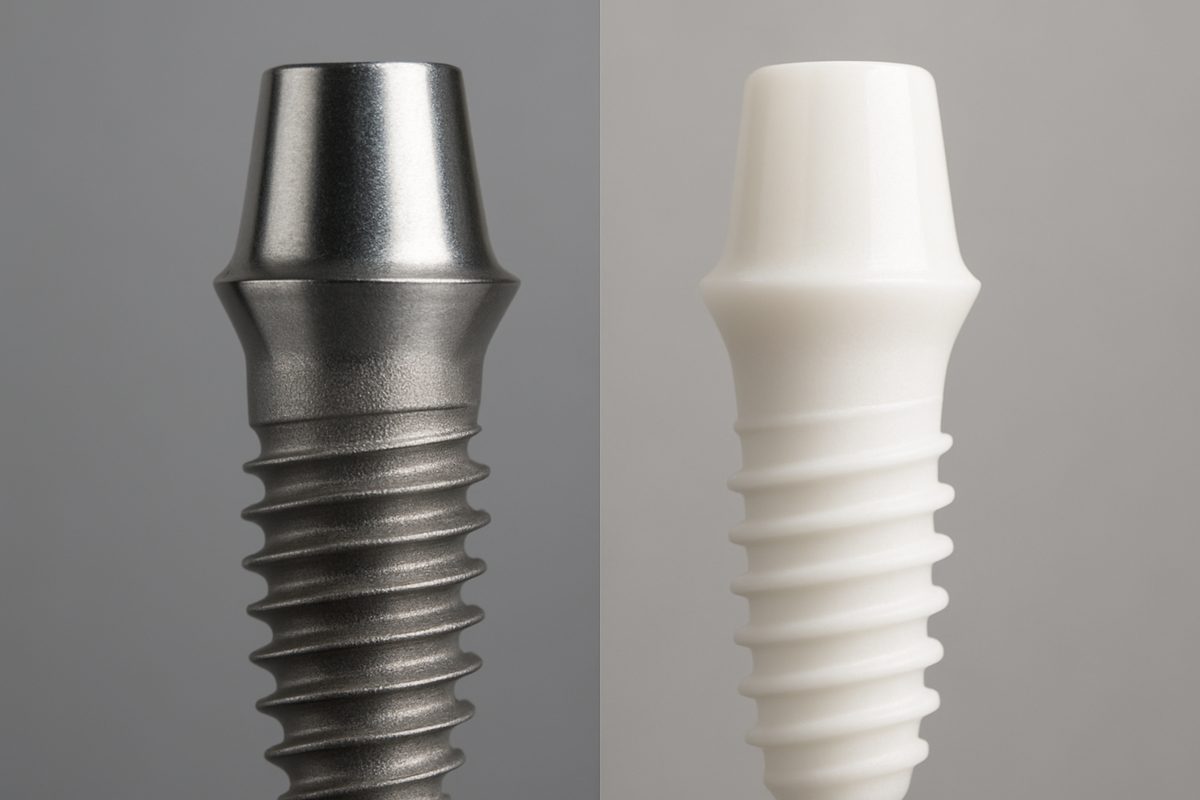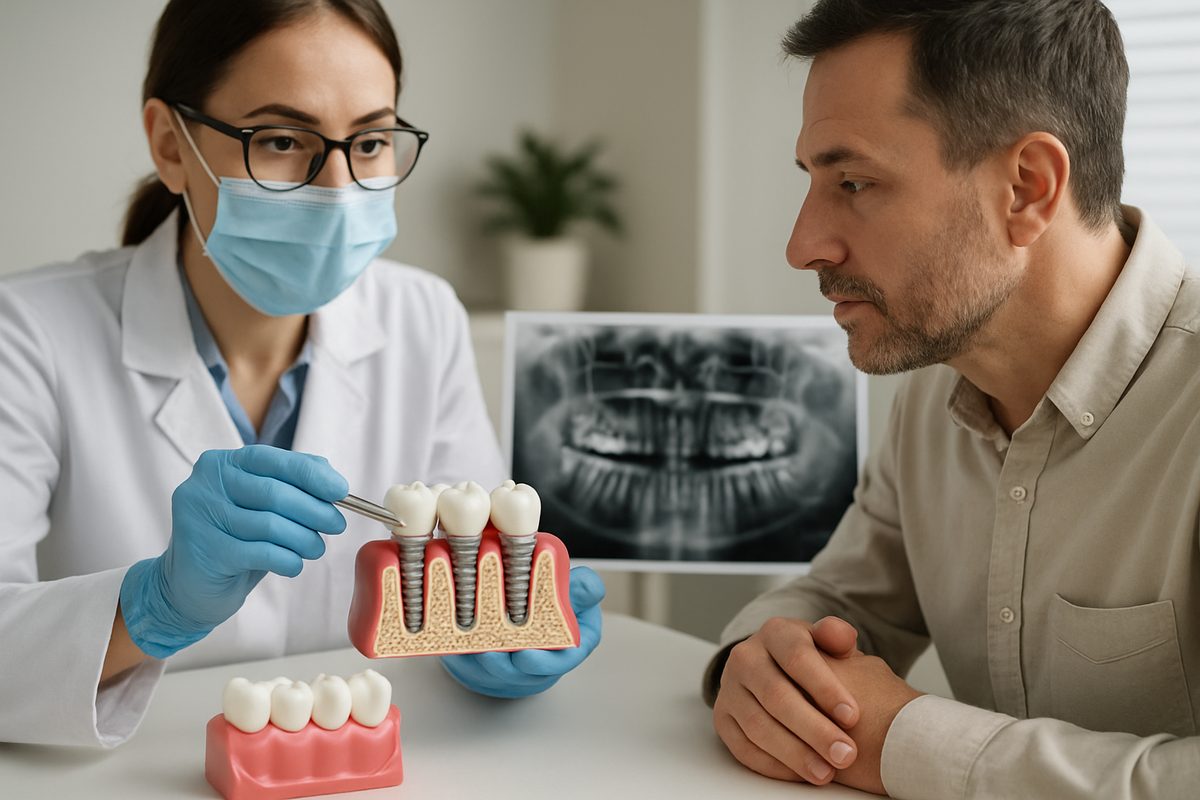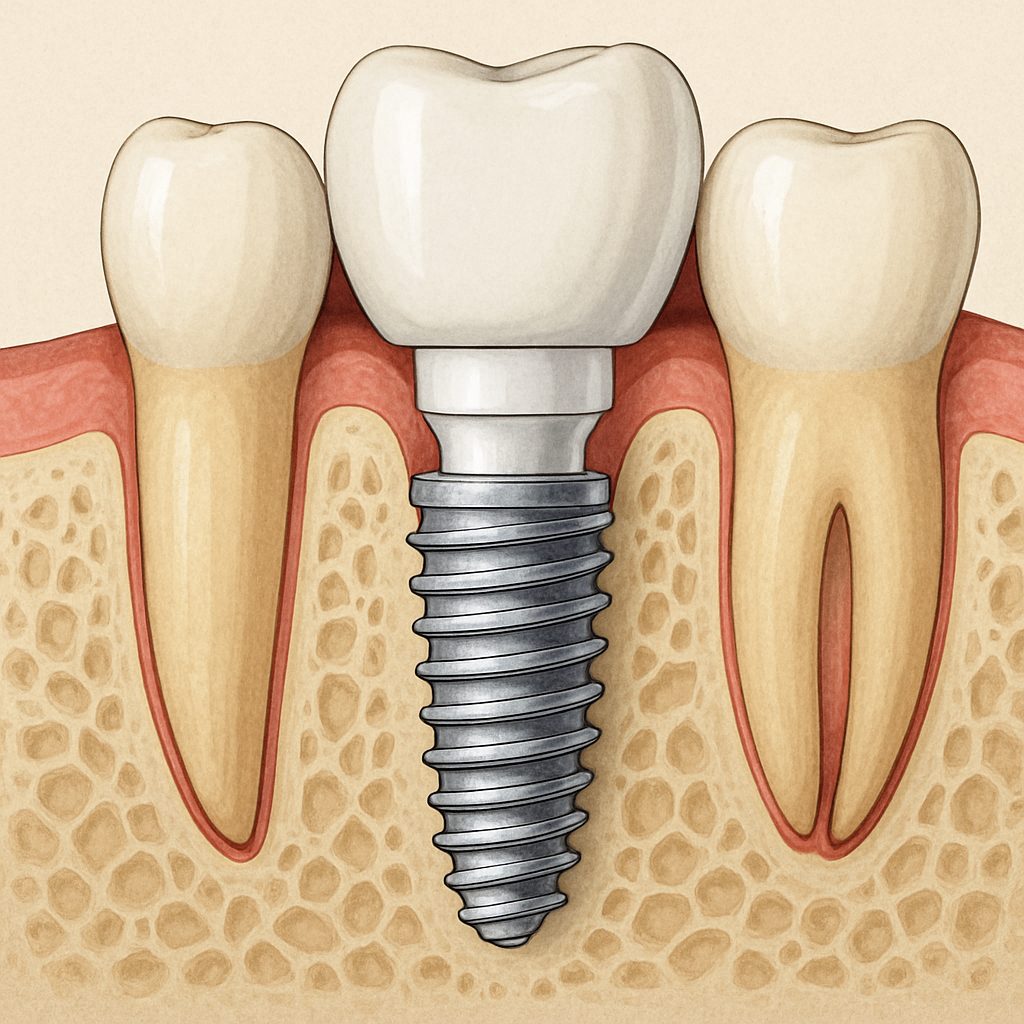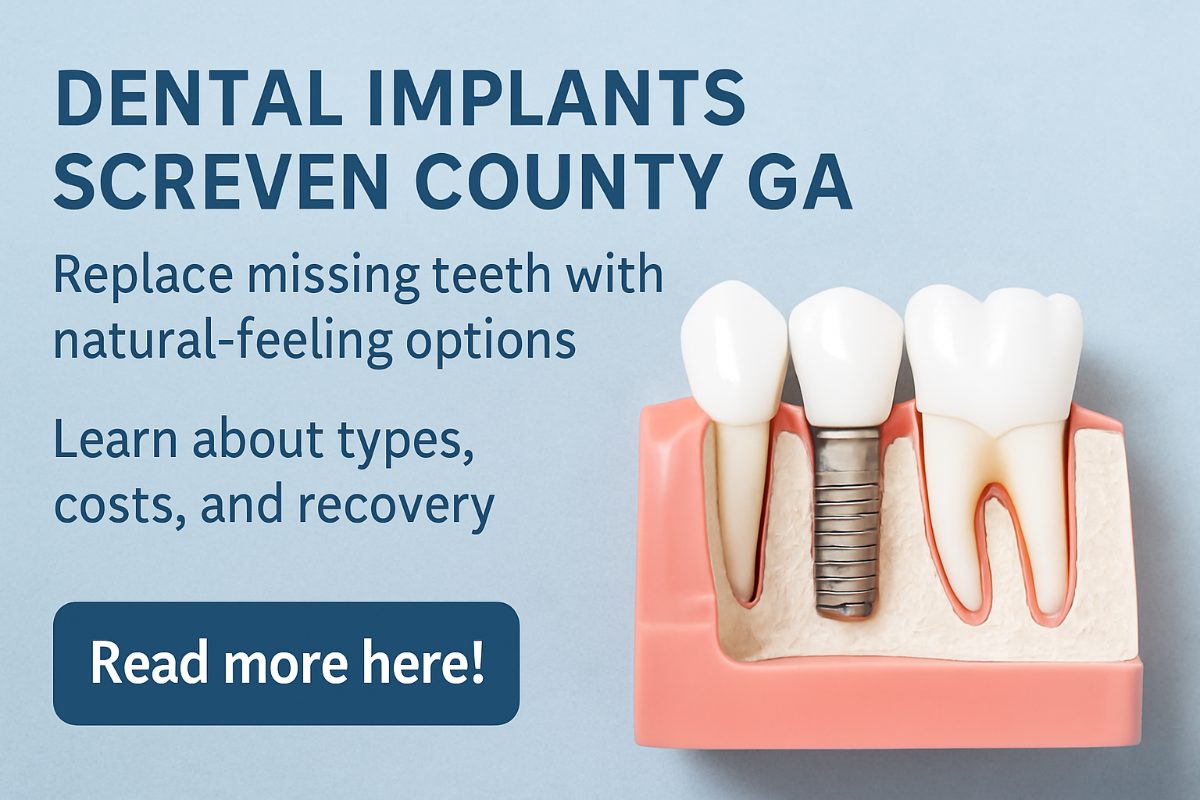Oral Surgery Blog - Statesboro & Swainsboro, GA
Tips, Facts, And The
Latest In Dentistry

Are Dental Implants Metal? What You Need To Know

Are dental implants metal? Yes — most implants use a metal (usually titanium), though metal-free ceramic options exist; below we explain what implants are, the materials used, common patient questions, how metal and metal-free implants compare, what to expect from treatment, and how East Georgia Center for Oral & Facial Surgery can help.
What are dental implants?
Dental implants are replacement tooth roots surgically placed into the jaw to support crowns, bridges, or full-arch prostheses. They act like natural roots to hold a tooth restoration firmly in place, preserve bone, and restore chewing and speech. Implants can replace a single tooth or an entire dental arch depending on a patient’s needs.
Materials used in dental implants
Implant fixtures are made from strong, biocompatible materials designed to fuse to bone (osseointegration). The two main choices today are metallic implants, primarily titanium, and metal-free ceramic implants, mainly zirconia. Each has distinct benefits and trade-offs.
Titanium: the most common metal
Titanium implants have decades of research and a long success record. The metal is lightweight, very strong, and integrates reliably with bone. Titanium may be alloyed slightly to increase strength. Because of this proven track record, most dentists and oral surgeons recommend titanium for a wide range of cases.
Zirconia: a metal-free ceramic option
Zirconia implants are made from a white ceramic and are a metal-free alternative. They appeal to patients who prefer non-metal materials for aesthetic or personal reasons. Zirconia can be very biocompatible and looks more tooth-like at the gum line, but it has less long-term data than titanium and may be more technique-sensitive in certain cases.
Are dental implants metal? Common patient questions
Are metal implants safe long-term?
Yes. Titanium implants have a strong safety record and high long-term success rates when placed by experienced surgeons and cared for properly. Most failures relate to infection, poor bone, or habits like smoking rather than the metal itself.
Can you be allergic to implant metal?
True titanium allergy is rare. Some patients report sensitivities to metals, but documented allergic reactions to titanium implants are uncommon. If you have a known metal allergy, discuss zirconia implant options with your surgeon.
Will metal implants affect MRIs or security detectors?
Dental implants typically do not interfere with MRI scans and are not flagged by airport security in a meaningful way. Titanium is nonferromagnetic, so it’s generally safe with MRI, though always tell your imaging team about any implants.
Comparing metal (titanium) vs metal-free (zirconia)
Durability and success rates
Titanium shows the longest track record and slightly higher overall success rates in complex cases. Zirconia is promising for simpler single-tooth situations but has less long-term evidence for multi-unit restorations.
Aesthetics and gum health
Zirconia’s white color can be advantageous for a natural look at the gum line if you have thin tissue. Both materials can support healthy gums when placed correctly and maintained with good hygiene.
Cost and availability
Zirconia implants may cost more and are less widely available than titanium. Your surgeon will advise based on clinical needs, availability, and budget.
How to decide which implant is right for you
Decision factors include bone quality, number of missing teeth, aesthetic goals, medical history, and personal preferences about metal. A consultation with 3D imaging helps determine which material and implant design will give the best long-term result.
What to expect during implant treatment
Implant treatment involves evaluation, surgical placement of the implant, a healing period for osseointegration, and then placement of the final restoration. Some practices offer same-day provisional teeth for qualifying patients and use advanced imaging and anesthesia to increase comfort and precision.
About East Georgia Center for Oral & Facial Surgery
East Georgia Center for Oral & Facial Surgery serves Statesboro and Swainsboro, GA, with board-certified oral surgeons who offer dental implant surgery, All-on-4® full-arch options, bone grafting, 3D imaging, and office-based anesthesia. Their team provides advanced surgical care for complex cases and same-day solutions for patients needing extractions and implants.
Next steps: questions and scheduling a consultation
If you’re asking “are dental implants metal in Statesboro, GA” or “are dental implants metal in Swainsboro, GA,” schedule a consultation to review options, imaging, and a personalized treatment plan. Bring a list of questions about materials, costs, and recovery so you can choose confidently.





